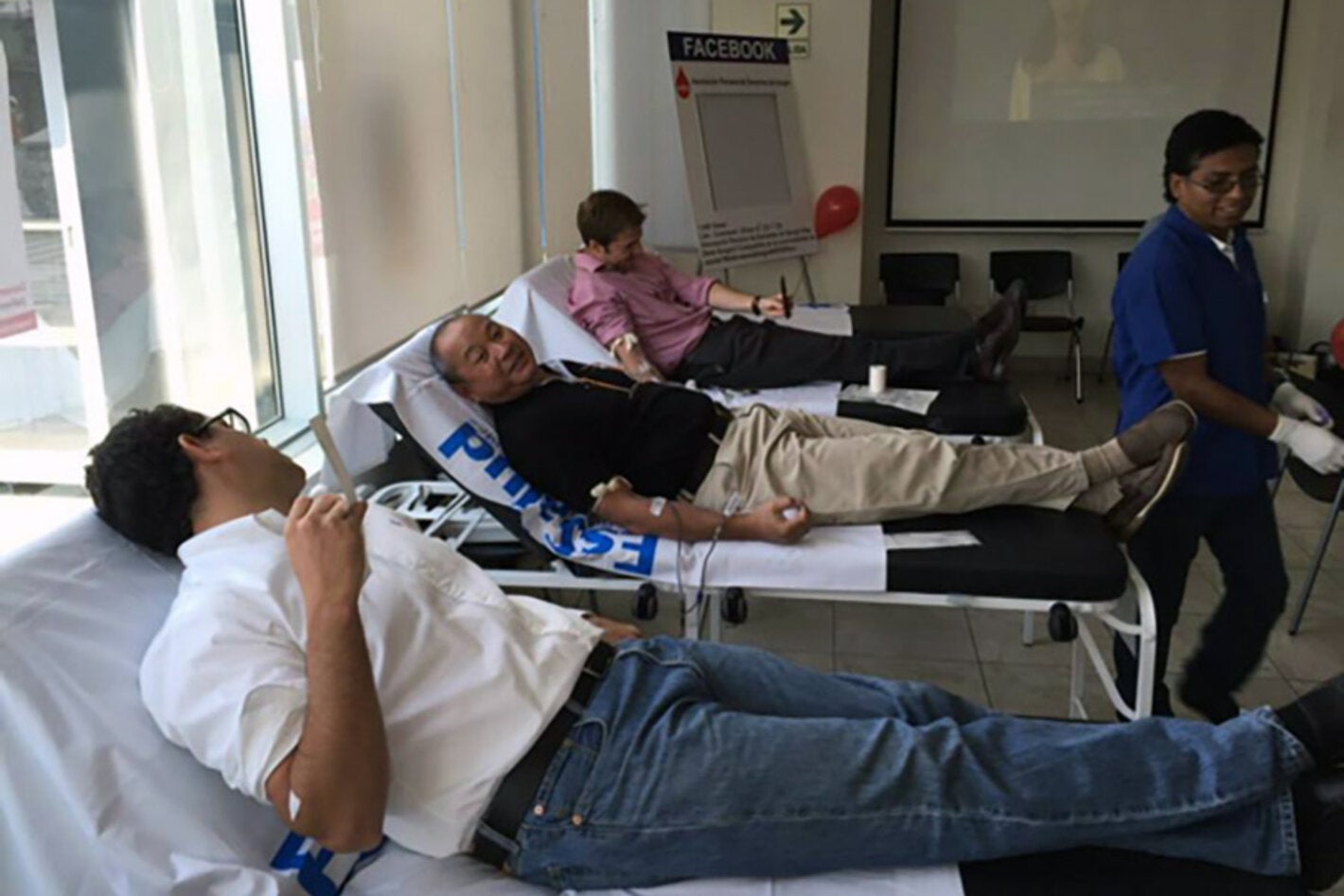
This year's campaign focuses on getting people to donate more frequently and increasing the number of voluntary donors, especially among young people
Washington, D.C., June 10, 2015 (PAHO/WHO) - "Thank you for saving my life" is the campaign theme of this year's World Blood Donor Day, held on 14 June. The initiative recognizes the millions of people who donate blood voluntarily and encourages them to do so frequently. It also encourages more people to donate, especially young people, in an effort to ensure that all blood for transfusions is obtained from unpaid voluntary donors, the best way to ensure a safe and sufficient blood supply.
The Pan American Health Organization/World Health Organization (PAHO/WHO) and its Member States are working to ensure that 100% of blood for transfusions comes from unpaid voluntary donors by 2019. So far, only a dozen countries in the Americas have reached this goal, while the rest continue to depend on family, or replacement, donors to varying degrees. Regionally, around 43% of all blood collected is from voluntary donors.
"Those who donate blood voluntarily and regularly are the only ones who can prevent a shortage of safe blood and blood components and stop people from having to resort to family or replacement donors," said María Dolores Pérez-Rosales, PAHO/WHO regional advisor on blood services. "Donations should be made frequently because blood and its components have a short shelf life and their availability depends on these regular donors."
In recent years, major efforts have been made to increase voluntary donations in the Americas, especially on some Caribbean islands. However, many countries are challenged by a demand that exceeds supply and by the need to ensure that all blood comes from regular, voluntary donors. In an effort to promote the commitment and desire to donate regularly, PAHO/WHO is calling for a focus on donor health and on providing donors with quality care at the time of donation.
PAHO/WHO also works with its Member States to improve universal access to safe blood. "Universal access to blood and blood components is an essential service that we must guarantee if we want to make progress toward universal access to health and universal health coverage," said Analía Porras, head of PAHO/WHO's Medicines and Health Technologies unit. "Ensuring ample supplies of safe blood helps improve the health of the people who need it."
Transfusion of blood and blood products helps save millions of lives every year. It can help patients suffering from life-threatening conditions live longer and with higher quality of life, and supports complex medical and surgical procedures. It also has an essential, life-saving role in maternal and child care and during man-made and natural disasters.
Brazil hosts World Blood Donor Day in the Americas
Brazil, which is hosting this year's regional World Blood Donor Day event, is one of the countries in the region that is working hard to improve blood safety and increase the number of voluntary, altruistic donors. It collects more than three million units of blood annually, which is 33% of all the blood collected in Latin America and the Caribbean.
The event will take place on 16 June at PAHO/WHO's country office in Brasilia, with representatives from 19 countries of the region expected to attend. The countries will also hold a meeting to review and share strategies to increase voluntary, repeated blood donations.
Blood donation by the numbers
- 12 countries and territories of the Americas have 100% voluntary blood donations: the Netherlands Antilles (Aruba and Curacao), Bermuda, Canada, Cuba, the French Overseas Departments, the United States of America, Guyana, Cayman Islands, British Virgin Islands, Nicaragua, and Suriname.
- 9 million units of blood were collected in 2013 in Latin America and the Caribbean.
- 4.3 out of every 10 blood donations in the Americas are voluntary.
- 57% of blood donations in the Caribbean are voluntary.
- 42% of blood donations in Latin America are voluntary.
- 99.9% of the units of blood collected in Latin America and the Caribbean are screened for HIV, hepatitis B and C, and syphilis.
###
The Pan American Health Organization (PAHO) works with the countries of the Americas to improve their populations' health and quality of life. Founded in 1902, it is the world's oldest international public health agency. It serves as the WHO Regional Office for the Americas and is the specialized health agency of the Inter-American system.



